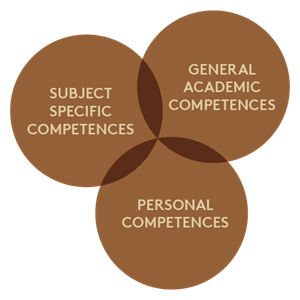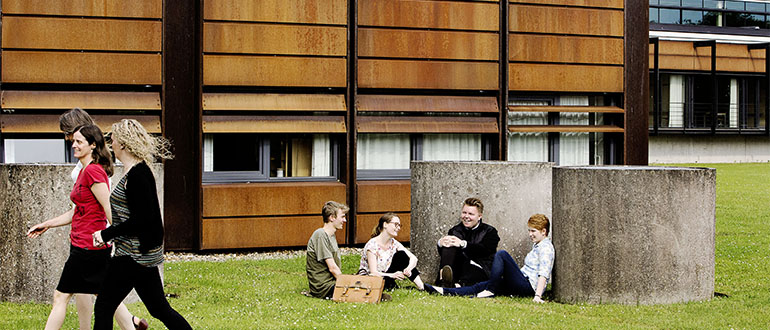Competences may be divided into three types:

It is important that you reflect on the process you go through while acquiring knowledge and competences – both on and off campus.
Employers are highly interested in hearing, how you work with a concrete task and how you solve the challenges you encounter in your life.
The employer is hiring you, not your diploma!
Therefore, it is very important that you are able to describe how you approach problem solving.
Test your competences in practice
The best way of getting an understanding of how to apply your knowledge on the job market is to test it during your course of study.
You may e.g. do it by doing an internship/work placement, voluntary jobs, projects or study jobs. This is the way you start networking.
Do you need guidance?
If you need help in describing your competences, you are welcome to contact SDU RIO.
You can also check out their events.
What are general academic competences? And what competences does my course of study give me?
When you work with different academic challenges and tools, you acquire general academic competences.
Often it is not the product that’s being evaluated, but your capacity to be critical about the process you have gone through, and how you have approached the challenges during the process to the product.
What are my general academic competences?
Through your courses, you’ll acquire among others the following general academic competences:
- Being able to isolate, define and analyze a professional problem by using relevant theories and methods
- Being able to systematize complex knowledge and data and select and prioritize that which is important for the subject matter
- Being able to critically assess the various theories and methods in the academic field
- Being able to apply concepts precisely and consistently and being able to engage in dialogue and argue on a basic theoretical foundation
- Being able to critically assess sources and document them
- Being able to convey professional problems and solutions in a way that make them relevant and understandable to various segments
- Being able to handle complex and development-oriented situations and cooperate and being able to both give and accept constructive criticism
- Being able to work independently, disciplined, structured and goal-oriented, and keep deadlines and formalities
What are subject specific competences? And what subject specific competences do I acquire though my programme?
The subject specific competences are the competences that are unique to your programme and the courses you take. They are the ones that separate your professionalism from other programmes’ professionalism. If you’d like a career in research or teaching in your field, then it is among other the subject specific competences you’ll be drawing on.
What are personal competences? And how do I determine what my personal competences are?
Your personal competences have to do with how you approach a task and how you deal with interpersonal relations. Perhaps you are especially good at cooperating, making decisions or structuring your work.
In other words, your personal competences describe your capacities as a person. And that in turn plays an important part in how you execute your job and how you cooperate with others.
It may be a good idea to practice your personal competences. If you are clear on what they are, you become more attractive to a potential employer. It means that you’ll be able to present yourself in a better way and, at the same time, determine whether a certain job or work place may suit you.
Generally, employers are equally interested in getting to know who you are and what motivates you as well as learning about your academic background.
What are my personal competences?
You may reflect on how you generally approach a task and cooperation. In doing so you may learn something about your personal competences. Test yourself by doing the following exercise:
Try to remember the last time you took part in a project
- How was your initial approach?
- When were you successful?
- When were you less successful?
- Which of your personal competences helped you succeed?
